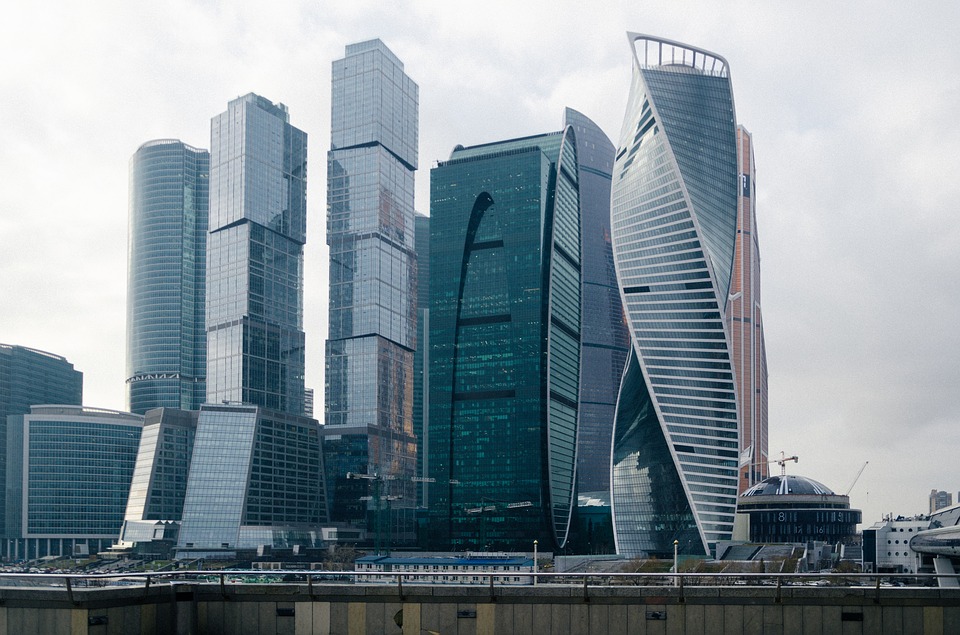Doing Business in Russian: Must-Know Terms Posted by Transparent Language on Jul 24, 2017 in language
Following the end of 75 years of socialism in 1991, Russia is still becoming accustomed to Western-style capitalism, both in its institutions and its culture. Russia’s communist past makes some skeptical of its economic potential today, though it’s for exactly this reason that many experts label numerous Russian companies as overlooked and undervalued on the stock market. Furthermore, many American companies, such as JPMorgan & Chase, Pfizer and Ford have established a major presence in Russia in the the form of partnerships with Russian companies and universities. With an economy still dominated by oil, gas and other natural resources, Russia has unveiled an ambitious plan to transition the economy toward a focus on high-tech. Whatever your industry or profession, here are the most important words and concepts to know about doing business in Russia.

Бизнес- Business
While governmental regulations have historically made business a difficult endeavor in Russia, according to the World Bank the country’s “Ease of Doing Business” rank improved from the 124th position in 2012 to 40th in 2016.
Развитие и рост- Development and growth
Russia was added to the G7 in 1997, signaling its place among the world’s most powerful industrialized nations. From 2000 to date, the country’s GDP per capita (ВВП на душу населения, literally “GDP per soul of the population”) has grown 700%, far outpacing all other BRIC countries, including China.
Рынок (pl. рынки)- Market
In the Russian economy (экономика), stocks (акции) are traded (торговать) on the Moscow Exchange (Московская биржа), the Russian equivalent of the New York Stock Exchange (Нью-Йоркская фондовая биржа). Like in the US, banks (банки) play an important role in trading, and markets are regulated by the Ministry of Finance (Министерство финансов Российской Федерации, or “Минфин” for short). In addition to stocks, one can buy options (oпционы), futures (фьючерсы), or bonds (облигации). Collectively, these are called “securities” (ценные бумаги, literally “valuable paper”).
Шеф/ Исполнительный директор – CEO
Everyone knows that central authority is important to government in Russia, and business leadership is no different. Decisions are made by the “Важная птица”, meaning the “big cheese” (literally “important chicken”!)
Связи- Connections
Personal relationships are important to business culture around the world. However, professional relationships are especially important to Russians, and can even take precedence over profit (прибыль); many a project manager has bemoaned the delay of a project and loss of money because his boss didn’t “feel right” about the person on the other side of the deal. Russians love to build business ties in a relaxing, casual way, such as by spending time together in the bathhouse (баня) or sauna (сауна). Cordial relations can also be facilitated by the giving of gifts (подарки). This emphasis on relationships developed during perestroika, when economic struggles meant that personal networks (and the trust needed to maintain them) were central to survival.
Технология – Technology
Russia has a strong tradition of innovation, having originated the radio (радио), the television (телевизор), the helicopter (вертолет), and, of course, the satellite (спутник). Today, however, much of Russia’s technological capability revolves around its many popular websites (сайты); the search engine Yandex, the Facebook-esque social media site VKontakte, and the mail system Mail.ru are just a few of the most successful Russian sites. Furthermore, in the early 2010’s, Russian surpassed German to become the second most common language on the internet (интернет). Other areas important Russia’s tech sector are IT (информационные технологии), energy (энергия) and aerospace (космонавтика).
государственные предприятия – State-owned enterprises
Many of Russia’s largest companies (компании) are state-owned. These include the airline Aeroflot (Aэрофлот), the energy company Gazprom (Газпром), and the defense company Uralvagonzavod (Уралвагонзавод, a combination of Урал, where the company is located, вагон, which is “a train carriage”, and завод, which means “factory”).
Bonus: Cognates galore!
The introduction of a Western-style market system in Russia means that the language has adopted a number of business-related words from English:
Маркетинг- Marketing
Бюджет- Budget
Бизнесмен- Businessman
Офис- Office (Note that these aren’t exactly the same.)
Директор- Director
Кредит- Credit
Капитализм- Capitalism
Капитал- Capital
Менеджер- Manager
Guest Post by Patrick Goodridge, a native of Philadelphia, Pennsylvania. He recently graduated from the University of Pennsylvania, where he studied linguistics, focusing on the Russian language. This summer, he will study Kazakh at the University of Wisconsin-Madison on a US State Department Title VIII grant. He will then enter Stanford for a one-year MA program in Russian, East European, and Eurasian Studies, with funding from the Department of Education FLAS program. In his free time, Pat likes to play chess, learn languages, and watch his favorite sport, lacrosse. You can connect with him on LinkedIn, where he is very active and open to research collaboration.

Build vocabulary, practice pronunciation, and more with Transparent Language Online. Available anytime, anywhere, on any device.




Comments:
Akiba:
I am interesting in learning both business and day to day Russian spoken and written communication.
I am also interested in the language used in a family
sitting (atmosphere) as well.